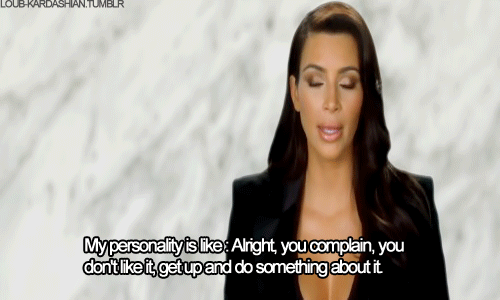Your emotional intelligence is a factor in your relationships, your career and many everyday decisions. It affects how you are as a leader, a friend, a colleague, a lover and a parent. In short, it affects your goals and your vision of how you want your life to turn out. So of course, you’ll be interested in these ways to improve your emotional intelligence – yes? Read on …
1. Recognize Your Triggers
 One of the best ways to boost emotional intelligence is to figure out exactly what your emotional triggers are. Triggers are the name given to certain occasions or situations that result in your losing control of your behavior in a negative or detrimental way. To be able to get a real grip of your emotional intelligence, it is essential that you sit down and have a really hard think about when it is that your feel at your most vulnerable; are there any common links between the situations?
One of the best ways to boost emotional intelligence is to figure out exactly what your emotional triggers are. Triggers are the name given to certain occasions or situations that result in your losing control of your behavior in a negative or detrimental way. To be able to get a real grip of your emotional intelligence, it is essential that you sit down and have a really hard think about when it is that your feel at your most vulnerable; are there any common links between the situations?
2. Mentally Rehearse
 If you are in a play, the more you rehearse your lines, the better you are going to be able to perform on the night. This exact same principle can be applied to situations that might test your emotions. The more you mentally prepare for different outcomes relating to your triggers, the better you are going to be able to handle it when a real situation arises. Being prepared leaves less room for unfortunate surprises.
If you are in a play, the more you rehearse your lines, the better you are going to be able to perform on the night. This exact same principle can be applied to situations that might test your emotions. The more you mentally prepare for different outcomes relating to your triggers, the better you are going to be able to handle it when a real situation arises. Being prepared leaves less room for unfortunate surprises.
3. Forced Action
 In times when your emotional intelligence is at its lowest and most alarmed, you need to try to actively force your brain in to positive action in order to begin a problem solving process. A particularly effective form of problem solving is to try to distract yourself and take your mind to another, happier, more controlled place. Whether it’s closing your eyes and trying to remember every single word to Bohemian Rhapsody, or giving yourself hard math equations to solve, this distraction will steer your emotions in a better direction.
In times when your emotional intelligence is at its lowest and most alarmed, you need to try to actively force your brain in to positive action in order to begin a problem solving process. A particularly effective form of problem solving is to try to distract yourself and take your mind to another, happier, more controlled place. Whether it’s closing your eyes and trying to remember every single word to Bohemian Rhapsody, or giving yourself hard math equations to solve, this distraction will steer your emotions in a better direction.
4. Healthy Escapism
 It’s never a good idea to live your entire existence in a fantasy land, but a spot of healthy escapism is vital to maintaining good emotional health and intelligence. You deserve to switch off for a while at the end of a hard day, and there is nothing better to help you do that than a couple of hours in front of the TV binge watching one of your favorite shows or catching up with a new DVD release.
It’s never a good idea to live your entire existence in a fantasy land, but a spot of healthy escapism is vital to maintaining good emotional health and intelligence. You deserve to switch off for a while at the end of a hard day, and there is nothing better to help you do that than a couple of hours in front of the TV binge watching one of your favorite shows or catching up with a new DVD release.
5. Have Correspondence Proofread
 In tense work environments where emotions can run high, the ‘send’ button can be your worst enemy. If you are feeling particularly emotional for some reason and need to construct an email to send to the entire office, have a trusted colleague proofread it before you send it out. Your state of mind might have lead to a more aggressive or argumentative tone than you intended, so let your friend give you their opinion before it’s too late.
In tense work environments where emotions can run high, the ‘send’ button can be your worst enemy. If you are feeling particularly emotional for some reason and need to construct an email to send to the entire office, have a trusted colleague proofread it before you send it out. Your state of mind might have lead to a more aggressive or argumentative tone than you intended, so let your friend give you their opinion before it’s too late.
6. Walk Away
 Sometimes, the best option for removing your mind from a tense situation is to simply tap out and walk away. It doesn’t always do your emotional intelligence good to have to slug it out in an argument until the very end. Preserve your state of mind and walk away before things get too testy.
Sometimes, the best option for removing your mind from a tense situation is to simply tap out and walk away. It doesn’t always do your emotional intelligence good to have to slug it out in an argument until the very end. Preserve your state of mind and walk away before things get too testy.
7. Watch Your Language
 Always be mindful of how you speak when you are going through a period of low emotional intelligence, stress or anger. The hazy cloud is temporary, but how you carry yourself during this period if going to make a lasting impression on your colleagues, friends and family. Make the effort to speak clearly and calmly; you don’t want to make a show of yourself.
Always be mindful of how you speak when you are going through a period of low emotional intelligence, stress or anger. The hazy cloud is temporary, but how you carry yourself during this period if going to make a lasting impression on your colleagues, friends and family. Make the effort to speak clearly and calmly; you don’t want to make a show of yourself.
8. Have the Ability to Reduce Negative Emotions
 This aspect of emotional intelligence is probably more important factor of emotional intelligence, it not only means recognizing negativity and having healthy ways to cope, but it also involves changing the way you think. Provide yourself with multiple options of dealing as well as avoiding jumping to negative conclusions immediately.
This aspect of emotional intelligence is probably more important factor of emotional intelligence, it not only means recognizing negativity and having healthy ways to cope, but it also involves changing the way you think. Provide yourself with multiple options of dealing as well as avoiding jumping to negative conclusions immediately.
9. Have the Ability to Stay Cool
 Managing stress isn't just about coping, it's about staying poised versus getting frazzled. Cool your temp (literally) to help reduce anxiety levels in situations where you're feeling panicked. Use exercise to boost your mood in situations of depression.
Managing stress isn't just about coping, it's about staying poised versus getting frazzled. Cool your temp (literally) to help reduce anxiety levels in situations where you're feeling panicked. Use exercise to boost your mood in situations of depression.
10. Have the Ability to Bounce Back
 Emotional intelligence is linked to how well you're able to bounce back from negative situations. If you're the type of person to dwell on a negative thing for too long then you're EI is probably lower than someone who's able to brush it off and make strides towards positivity in their life.
Emotional intelligence is linked to how well you're able to bounce back from negative situations. If you're the type of person to dwell on a negative thing for too long then you're EI is probably lower than someone who's able to brush it off and make strides towards positivity in their life.
How much thought do you give to your emotional intelligence or is it something you’ve never really considered?